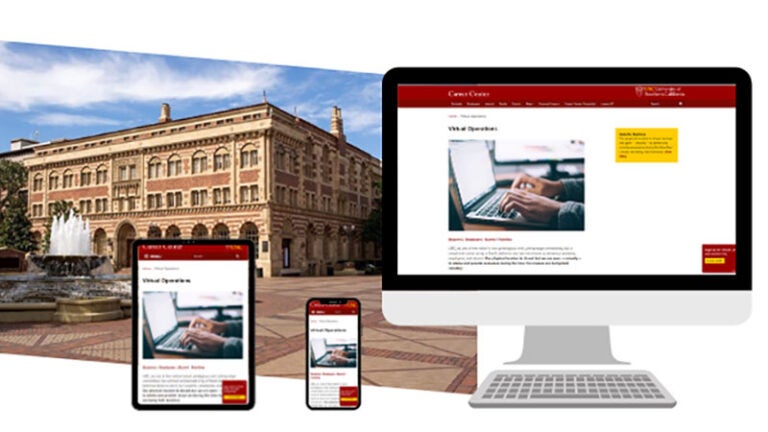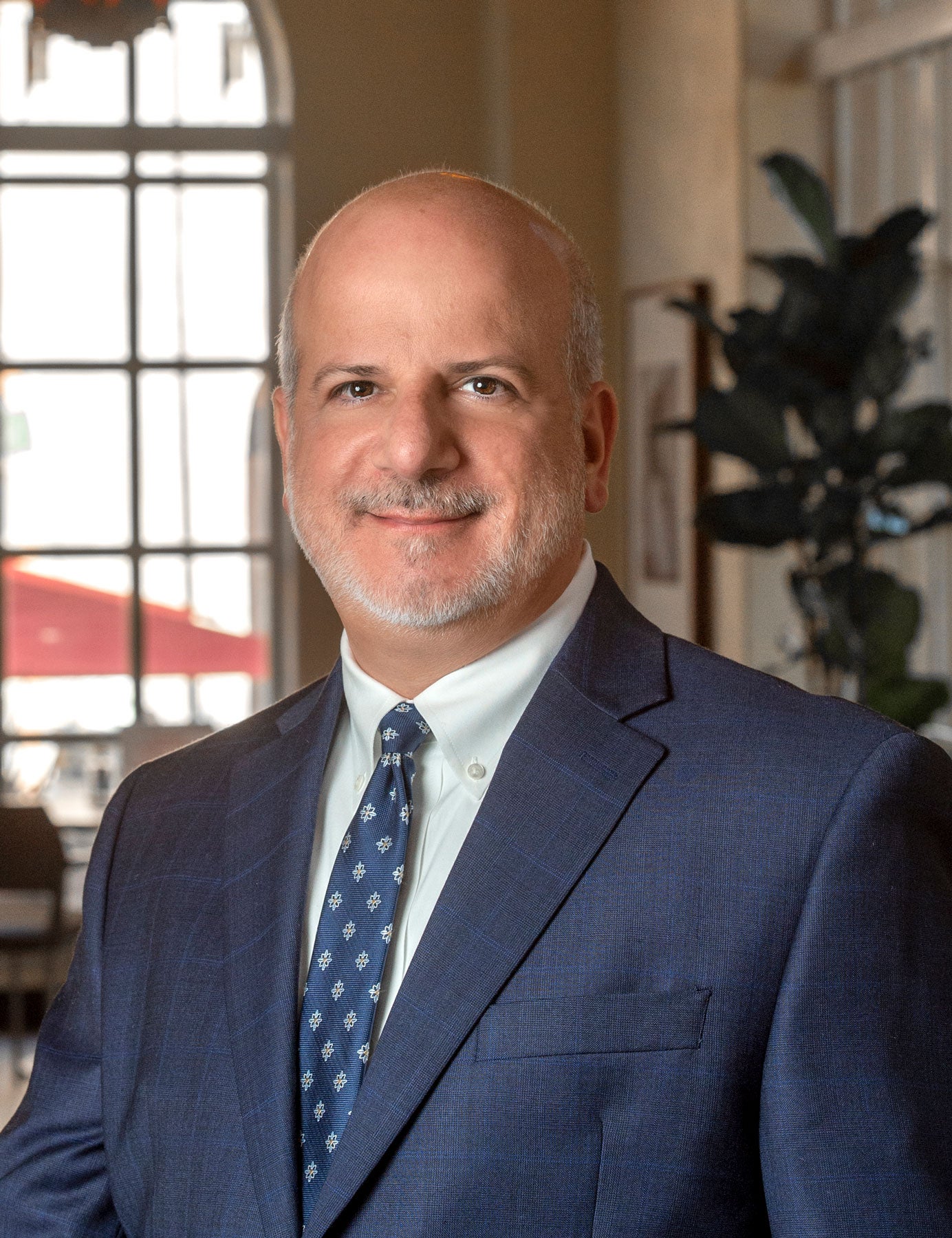
USC Career Center is offering online services, including live resume critiques, one-on-one coaching, help reaching employers and even a virtual career fair. (Image/Courtesy of Carl Martellino)
USC Career Center goes virtual, keeping students connected
Despite a global pandemic, Career Services is still linking students to jobs and employers and helping them navigate a new world of online internships.
America may be shut down, but the USC Career Center is up and running — virtually.
“We are providing full career services and resources to all students during this time,” said Carl Martellino, associate vice provost for student affairs. “Through a broad and robust array of software as a service platforms and technical tools, we are able to offer students, alumni and employers nearly everything we provide when our physical location is open.”

Even though the USC Career Center staff are scattered across Los Angeles and Orange counties and unable to serve stakeholders in person, a relatively seamless transition means students and alumni have felt no disruption in the breadth and quality of services they’ve come to expect. They can still get live resume critique and one-on-one coaching, interview with a hiring manager via Zoom or another video platform, gain industry insights and speak face-to-face with an employer at a Trojan Talk session or virtual career fair.
How hard was it to switch over? From a systems perspective, Career Services wasn’t starting from scratch.
“We’ve been preparing and testing for years, by lining up the right service providers and understanding who we serve and how they use and interact with technology,” Martellino said. He further emphasized that the Career Center has spent years serving Trojan alumni worldwide. Working internationally pushed the Career Center to embrace and adapt to virtual and online accessibility early on.
How the Career Center — and internships — have pivoted to online
More importantly, how are students and alumni adapting to a service that was formerly provided in person? Martellino explained that students have been pretty open to working virtually — it’s second nature. While he knows there’s still anxiety about the changeover, the feedback has been positive and there’s been no lag in demand. Career Services are being accessed at the same levels as last year.
Olivia Yan, who recently earned her master’s degree from the USC Rossier School of Education, gives a thumbs up to the virtual services. “It’s good to know the Career Center still strives to provide support during this time of uncertainty,” she said.
It’s good to know the Career Center still strives to provide support during this time of uncertainty.
Olivia Yan
What is different in the world of Career Services in the midst of the coronavirus is the rise in online or virtual internships and sudden changes to event-based and location-centric ones. Virtual internships allow students to work from anywhere and, while they are not completely novel, certain fields such as design, information technology, journalism and research have been more likely to offer them. With the advent of social distancing and as working remote becomes more prevalent, other fields, industries and organizations are testing the waters and shifting their programs accordingly.
Students and alumni can research the benefits of virtual internships on the Career Center website, including greater flexibility for other obligations like classes, the chance to attain practical resume experience in virtual platforms like Google Hangouts, Slack and Zoom, the opportunity to strengthen communication and time-management skills, and the financial advantages — saving money on gasoline, parking and even relocation.
The most notable downside of a virtual internship is the loss of social interaction. “You miss out on touching base in the hallway or catching up at the water cooler. As a workaround, many employers ask interns to schedule more frequent ‘check-ins’,” Martellino added. By and large, USC students and alumni are well versed in the technologies needed to thrive in a virtual working environment.
It’s often the employers who have a steeper learning curve. Many are grappling with identifying the software and services needed to administer their programs and are using tools built into the Career Center’s connectSC platform to help them post opportunities.
Career Services provides stability in an unstable time
Overall, the USC Career Center team believes that the number of virtual internship opportunities will increase and gain popularity. For event-based and location-centric internships, it’s more ambiguous, as the pandemic has definitely thrown a few curveballs. Madison Young, a junior pursuing a music industry major, was an intern this spring for the Academy of Country Music. The internship ended abruptly when the academy’s annual awards show was postponed from April 5 to September.
“We worked so hard, so for it to be canceled literally two weeks before was really sad,” Young said.
Other interns have pivoted to keep their programs afloat. Anjali Devgan, a junior majoring in human sciences, is continuing a St. Vincent Meals on Wheels internship but not before changing senior citizen and volunteer play dates to phone calls.
Another near casualty is the USC Global Fellows Internship Program, which sends undergraduates to Asia for 10 weeks during the summer. With the help of a third-party provider, the program was modified and a similar experience is now offered fully online.
Smooth functioning and far-reaching virtual operations like that of the Career Center provide a sense of normalcy in these challenging times. As alumna Yan said, “It is reassuring to see we have such a supportive community.”



